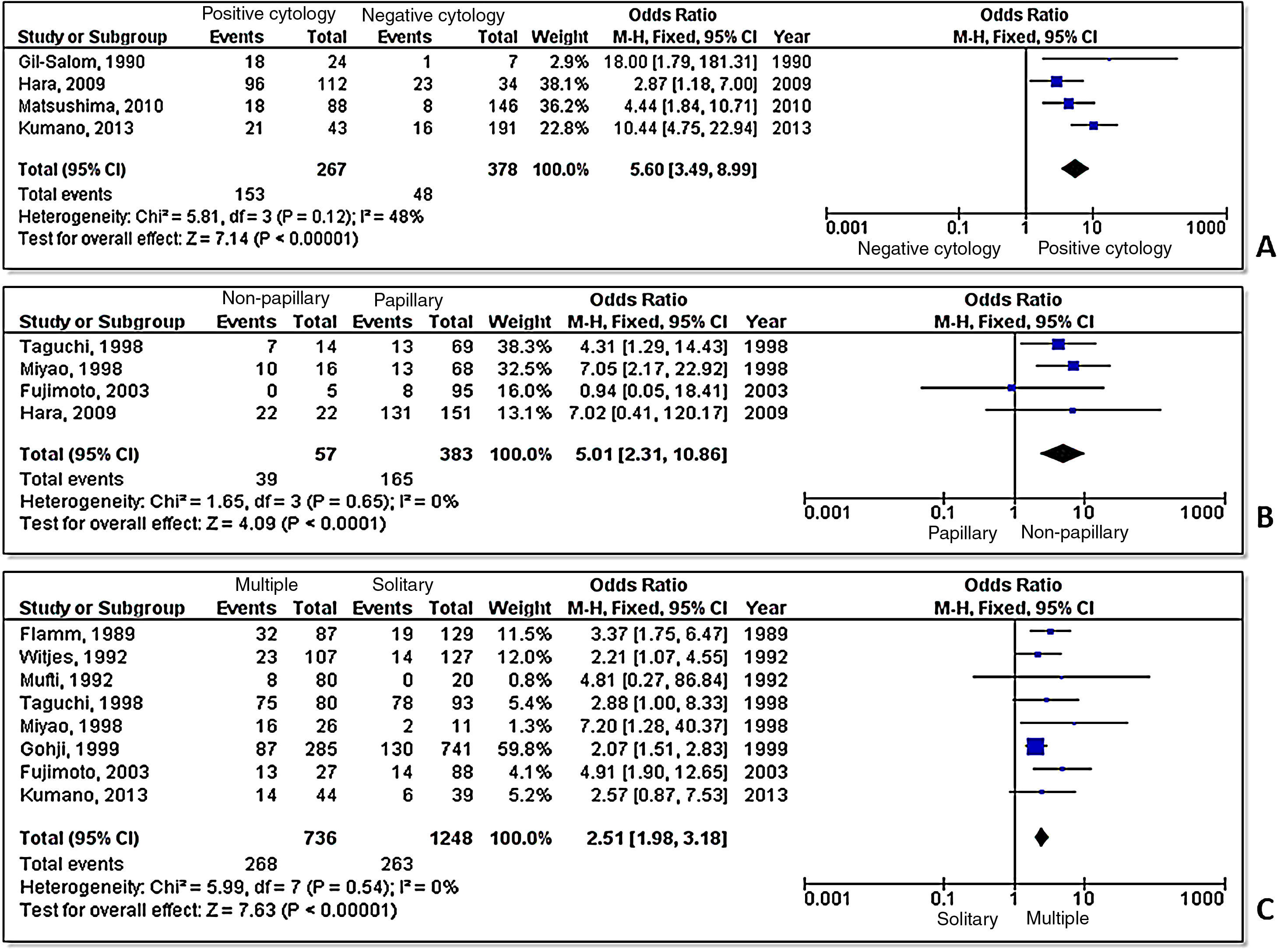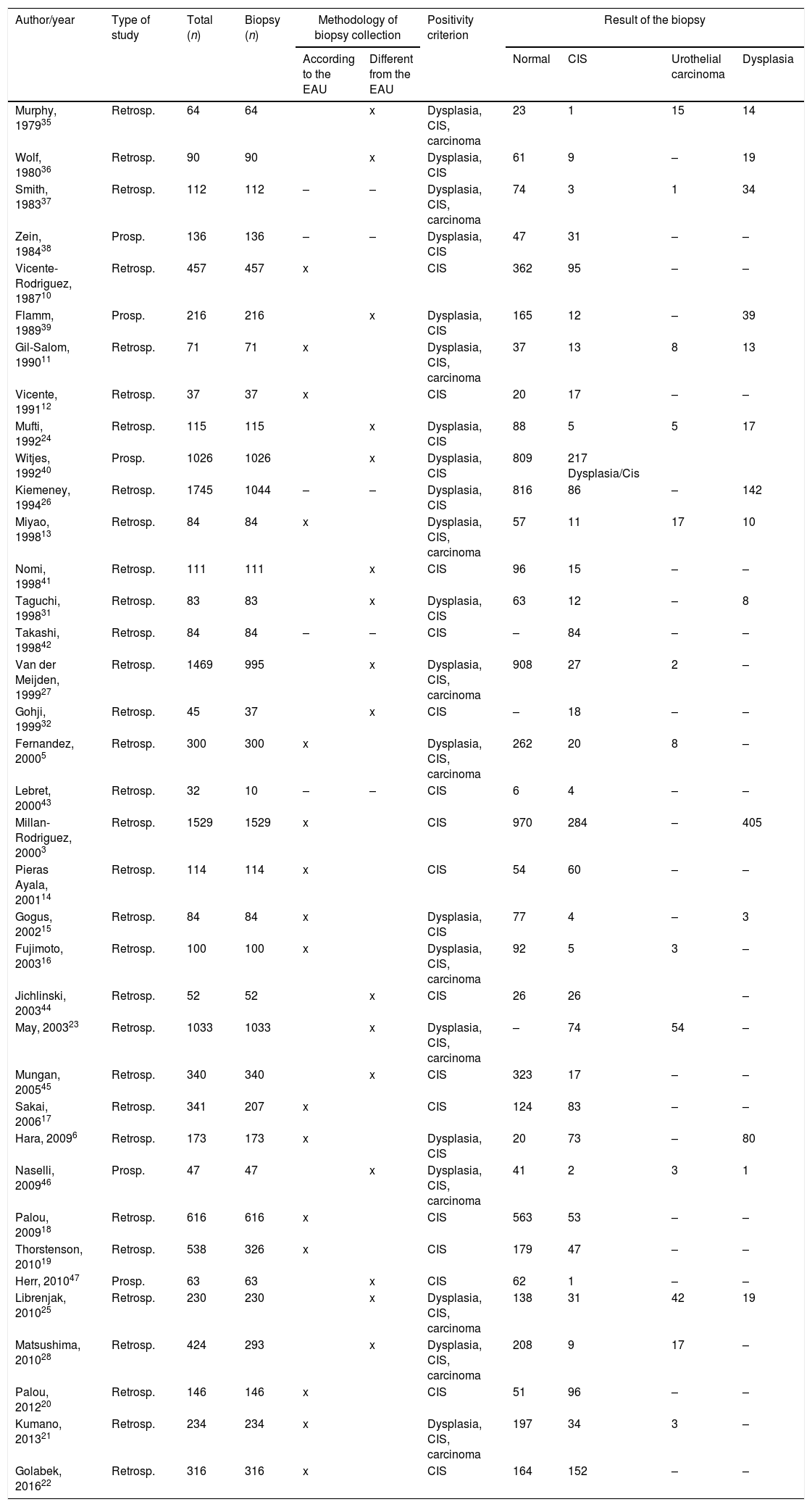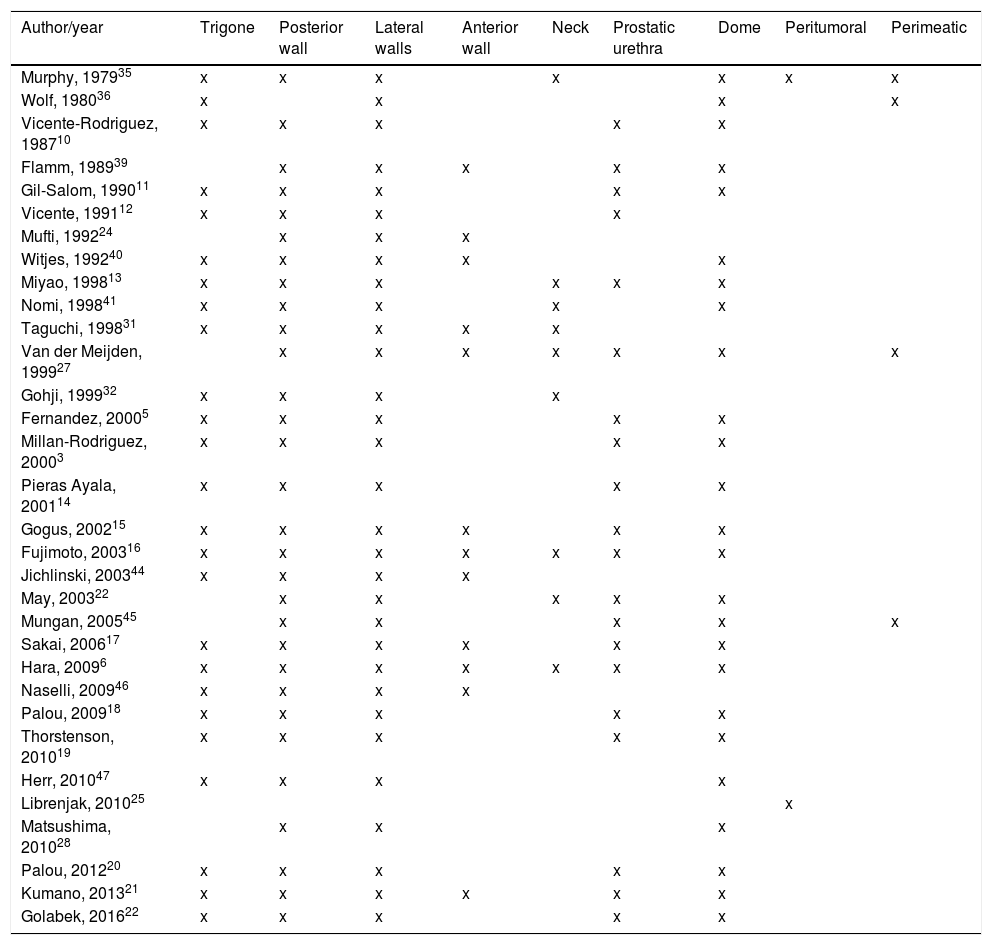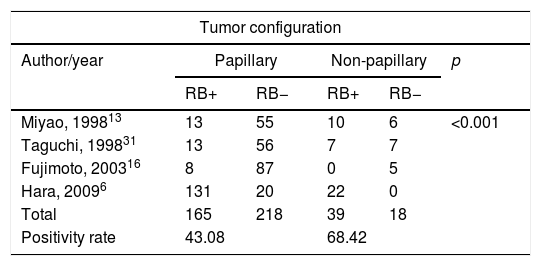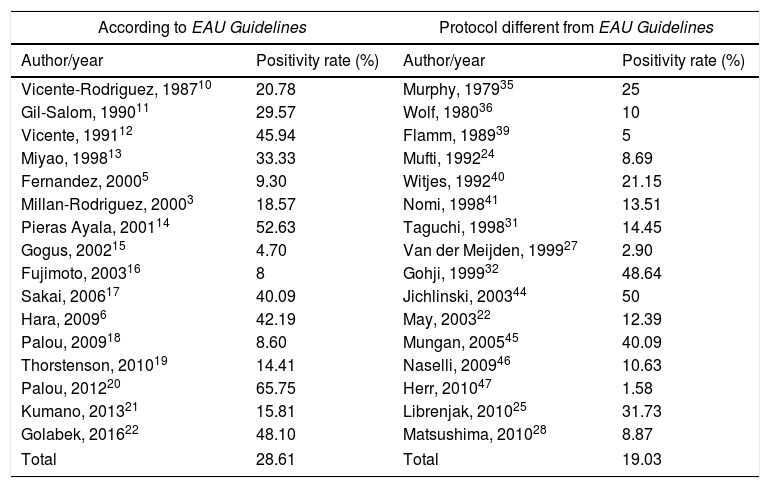This systematic review of the literature has been focused on determining the clinical usefulness of random bladder biopsies (RB) in the diagnosis of carcinoma in situ. A meta-analysis was performed to establish the clinic and pathological factors associated to positive biopsies.
Evidence acquisitionA systematic review was performed using Pubmed/Medline database according to the PRISMA guidelines. Thirty-seven articles were included, recruiting a total of 12,657 patients, 10,975 were submitted to RB.
Evidence synthesisThe overall incidence of positive RB was 21.91%. Significant differences were found in the incidence of positive RB when patients were stratified according to urine cytology result, tumor multiplicity, tumor appearance, stage and grade. The results of the meta-analysis revealed that the presence of positive cytology, tumor multiplicity, non-papillary appearance tumors, stage T1 and histological grades G2 and G3 represent the risk factors to predict abnormalities in RB.
ConclusionsThe incidence of positive RB in patients with non-muscle invasive bladder cancer was 21.91%. The maximum usefulness of RB was observed when these are performed in a standardized way. The results of the meta-analysis showed that besides positive cytology and non-papillary appearance tumors, tumor multiplicity and histological grades G2 and G3 represent risk factors associated to positive RB, suggesting that the use of RB might be extensive to the intermediate risk group of the European Organization for Research and Treatment of Cancer (EORTC).
Esta revisión sistemática de la literatura se ha focalizado en determinar la utilidad clínica de las biopsias aleatorias (BA) de vejiga para el diagnóstico de carcinoma in situ. Se realizó un metaanálisis para establecer los factores clinicopatológicos asociados a la positividad de dichas biopsias.
Adquisición de la evidenciaSe realizó una revisión sistemática de la literatura usando la base de datos PubMed/Medline siguiendo los criterios PRISMA. Se incluyeron 37 artículos, reclutando un total de 12.657 pacientes, de los que 10.975 fueron sometidos a BA.
Síntesis de la evidenciaLa incidencia global de BA positivas fue del 21,91%. Se encontraron diferencias significativas en la positividad de las BA cuando los pacientes fueron estratificados según resultado de la citología, multiplicidad, aspecto tumoral, estadio y grado. Los resultados del metaanálisis revelaron que la presencia de citología positiva, multiplicidad tumoral, tumores de aspecto no papilar, estadio T1 y grados histológicos G2 y G3 representan factores de riesgo que predicen anormalidades en las BA.
ConclusionesLa incidencia de BA positivas en pacientes con tumor vesical no-músculo invasivo fue del 21,91%. El máximo rendimiento de estas biopsias se evidencia cuando se realizan de manera normativizada. Los resultados del metaanálisis muestran que, además de la citología positiva y el aspecto no papilar, la multiplicidad tumoral y los grados histológicos G2 y G3 representan factores asociados a BA positivas, por lo que el uso de dichas biopsias se puede hacer extensivo al grupo de riesgo intermedio de la European Organization for Research and Treatment of Cancer (EORTC).
Artículo
Comprando el artículo el PDF del mismo podrá ser descargado
Precio 19,34 €
Comprar ahora







